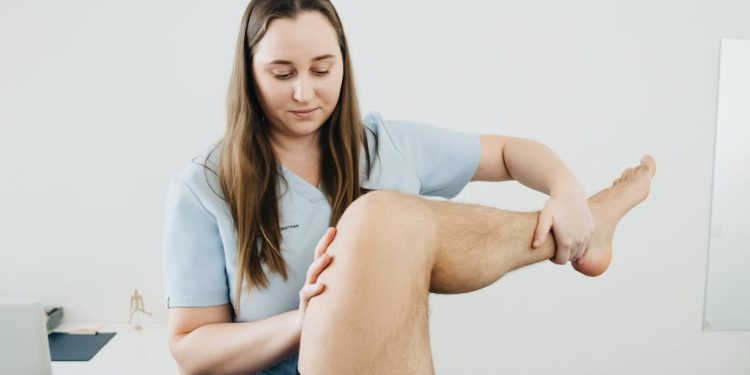Chronic knee pain is a common issue that affects people of all ages. Whether it’s caused by arthritis, injury, or long-term wear and tear, knee pain can significantly impact daily activities and overall quality of life. Managing this pain effectively is essential to staying active and maintaining mobility. This article offers simple and practical tips for handling chronic knee pain, focusing on strategies that can help reduce discomfort and improve knee function.
Understanding the Causes of Knee Pain
Before diving into tips for managing knee pain, it’s important to understand some common causes. Chronic knee pain can stem from various conditions, including osteoarthritis, rheumatoid arthritis, tendinitis, and bursitis. Injuries like torn ligaments or cartilage damage can also lead to persistent pain. In some cases, overuse or repetitive movements can aggravate the knee, leading to ongoing discomfort. Identifying the underlying cause of your knee pain can help you choose the most effective management strategies.
Exercise and Physical Therapy
One of the most effective ways to manage chronic knee pain is through regular exercise and physical therapy. Gentle exercises that strengthen the muscles around the knee, such as quadriceps and hamstrings, can help support the joint and reduce pressure on it. Low-impact activities like swimming, cycling, and walking are great options for staying active without putting too much strain on your knees. Stretching exercises are also important, as they help maintain flexibility and prevent stiffness in the knee joint.
Physical therapy is another valuable tool for managing knee pain. A physical therapist can create a personalized exercise plan tailored to your specific needs and limitations. They can also teach you proper techniques for performing exercises, which can help prevent further injury and alleviate pain. Regular sessions with a physical therapist can lead to significant improvements in knee function and pain management over time.
Weight Management
Maintaining a healthy weight is crucial for managing chronic knee pain. Excess weight puts additional stress on the knees, which can worsen pain and contribute to the progression of conditions like osteoarthritis. Losing even a small amount of weight can make a big difference in reducing knee pain and improving mobility. If weight loss is a goal, focus on a balanced diet that includes plenty of fruits, vegetables, lean proteins, and whole grains. Combining healthy eating with regular exercise can help you achieve and maintain a healthy weight, reducing the strain on your knees.
Pain Management Techniques
There are several pain management techniques that can help alleviate chronic knee pain. Over-the-counter pain relievers, such as acetaminophen or nonsteroidal anti-inflammatory drugs (NSAIDs), can be effective for managing mild to moderate pain. For more severe pain, your doctor may recommend prescription medications or injections, such as corticosteroids or hyaluronic acid, which can provide longer-lasting relief.
In addition to medications, other pain management methods can be beneficial. Applying ice to the knee for 15-20 minutes at a time can help reduce swelling and numb pain, especially after activity. Heat therapy, such as using a warm compress or taking a warm bath, can also help relax muscles and ease stiffness in the knee joint. Some people find relief through alternative therapies like acupuncture, which may help reduce pain and improve knee function.
Protecting Your Knees
Taking steps to protect your knees can prevent further injury and reduce pain. Wearing supportive shoes with proper arch support can help improve your posture and reduce stress on your knees. If you engage in activities that put a lot of pressure on your knees, such as running or jumping, consider using knee braces or supports to provide extra stability. It’s also important to listen to your body and avoid activities that cause excessive pain or discomfort. Pacing yourself and allowing time for rest and recovery can help you manage knee pain more effectively.
Lifestyle Changes and Coping Strategies
Making certain lifestyle changes can also help you manage chronic knee pain. Staying active is important, but it’s equally important to balance activity with rest. Incorporate regular breaks into your routine, especially if you spend a lot of time on your feet. Elevating your legs when resting can help reduce swelling and ease discomfort.
Learning coping strategies to deal with chronic pain is essential for maintaining a positive outlook. Mindfulness techniques, such as deep breathing and meditation, can help you manage stress and reduce the emotional impact of chronic pain. Connecting with others who experience similar challenges, such as through support groups or online communities, can provide valuable encouragement and advice.
By following these tips, you can take an active role in managing your chronic knee pain and improving your quality of life. While it may not be possible to completely eliminate knee pain, these strategies can help you reduce discomfort, maintain mobility, and stay engaged in the activities you enjoy.










